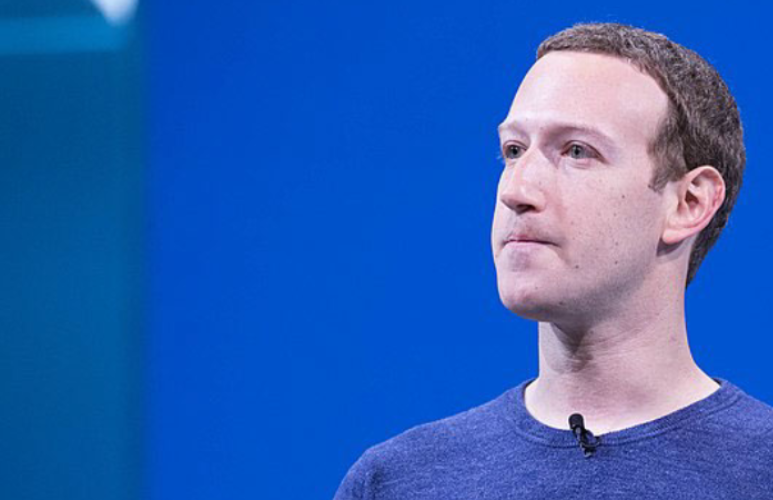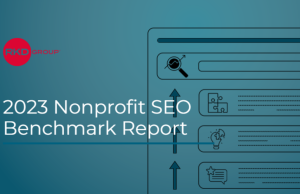Leaders of several prominent nonprofits are discussing reducing Facebook’s role in their media mix, if not leaving it entirely. The conversation reflects a growing perception that the online platform is censoring nonprofits’ messaging, thwarting organizing efforts and putting barriers between nonprofits and donors.
Some nonprofit leaders are concerned about the data profiles Facebook builds on its users as they engage with advertising and other content, fearing these could offer opportunities for disinformation spreaders to target or misinform swayable individuals.
Facebook did not respond to requests for comment by deadline.
“On a platform like Facebook, that data is going to be tracked and monetized and monitored,” said Amy Sample Ward, CEO of NTEN, a Portland, Ore., nonprofit that promotes racially ethical technology strategies. “This is creating a lot of data about who in your community agrees with certain things, or is willing to take certain actions, and that [creates] a data paper trail that certain folks could do a lot of harm with.”
Facebook’s efforts to screen “political statement” advertising have frustrated some nonprofit leaders. The criteria used are not transparent, in an effort to prevent bad actors from tweaking their messaging to circumvent censorship. But legitimate organizations are caught in the filter, and leaders suspect aspects inherent to their identities might be triggering alerts.
“When we are trying to promote or boost our ads on stories or issues that have us quoted in them, [the ads] will get rejected because they are classified as political,” said Shireen Mitchell, founder of Washington, D.C.-based Stop Online Violence Against Women. “The work we do is tracking online harassment threats or actions that are taken against certain groups of people, particularly women of color,” she said. Mitchell suspects that, under the filtering algorithms, “being a woman of color in the [science, technology, engineering and mathematics fields] is a ‘political statement’.”
Heightening frustration is the perception that ads from politicians sail through unchallenged. Politicians claiming preferential treatment for their messaging is nothing new: both mail and telephone preference services, which allow consumers to register in hopes of reducing unwanted advertising communication, exempt political speech from restrictions.
Elyse Wallnutt, director of strategy at Washington, D.C.-based marketing and creative agency Media Cause, noted that Facebook’s requirements that some advertisers register with the platform and provide proof of U.S. residency, such as a driver’s license, might create vulnerabilities for nonprofit workers. “It wasn’t clear what was going to be done to dispose of that information,” once the verification process was completed,” Wallnutt said.
Between the verification process and ad review, nonprofit digital managers attempting to place time-sensitive advertisements might lose out on organizing or fundraising opportunities. “Situations that require rapid response, such as [President Donald] Trump pulling out of the [Paris Agreement on climate change] in early 2017 were horrendous,” Wallnutt added.
Facebook’s sheer reach, however, as well as the ability to target those potentially interested in an organization’s message, make leaving the platform tricky. A perfect replacement does not currently exist, although there are conversations being had about finding or creating one.
“Maybe people are going to find your organization or event on Facebook, but you can point them to your direct website, or to an SMS channel they can subscribe to,” Sample Ward said. “Folks are not necessarily ‘we will never use Facebook,’ but we need to be very intentional about why and when we use certain platforms.”
Some take a harder line. “If the sheer volume of people I am trying to reach exists, but they are stopping me from boosting to those people, what is the point of staying?,” Mitchell asked rhetorically.
Alternative social platforms such as MeWe offer one possibility, but they also come with drawbacks. “MeWe…has been already taken over by conspiracy theorists, the anti-vaxxers and the like,” Mitchell said. “Some [messaging] we can push out on LinkedIn better than anyplace else at this moment. And, of course, we have Twitter.”
Leaving Facebook won’t put a crimp in Stop Online Violence Against Women’s cash flow. The organization doesn’t use the platform for fundraising. “We feel uncomfortable about the fact that in many instances Facebook makes money off those fundraisers,” Mitchell said. She prefers platforms such as Patreon, which allows individuals to underwrite nonprofits and for-profit organizations through subscription models.
Wallnutt believes taking a data-focused approach will give some nonprofit managers the business case needed for pulling away from Facebook. The platform’s black box approach to fundraisers conducted on the site — Facebook turns over a lump-sum check, but provides very little individual donor data — makes building brand affinity with donors a challenge.
“I have been thinking about actively trying to test out of Facebook for years,” Wallnutt said. “More and more people seem to be open to the idea that we need to be exploring it. Larger organizations are investing in so many places online that it is critical to understand where their [return on investment] is. Smaller organizations are … more severely impacted by the inability to reach back out to the donors who are giving via Facebook, because they really need them.”
On June 6, scientists within research institutions funded by Facebook’s Founder and CEO Mark Zuckerberg’s Chan Zuckerberg Initiative sent him a letter urging him to “consider stricter policies on misinformation and incendiary language that harms people or groups of people, especially in our current climate that is grappling with racial injustice.”











